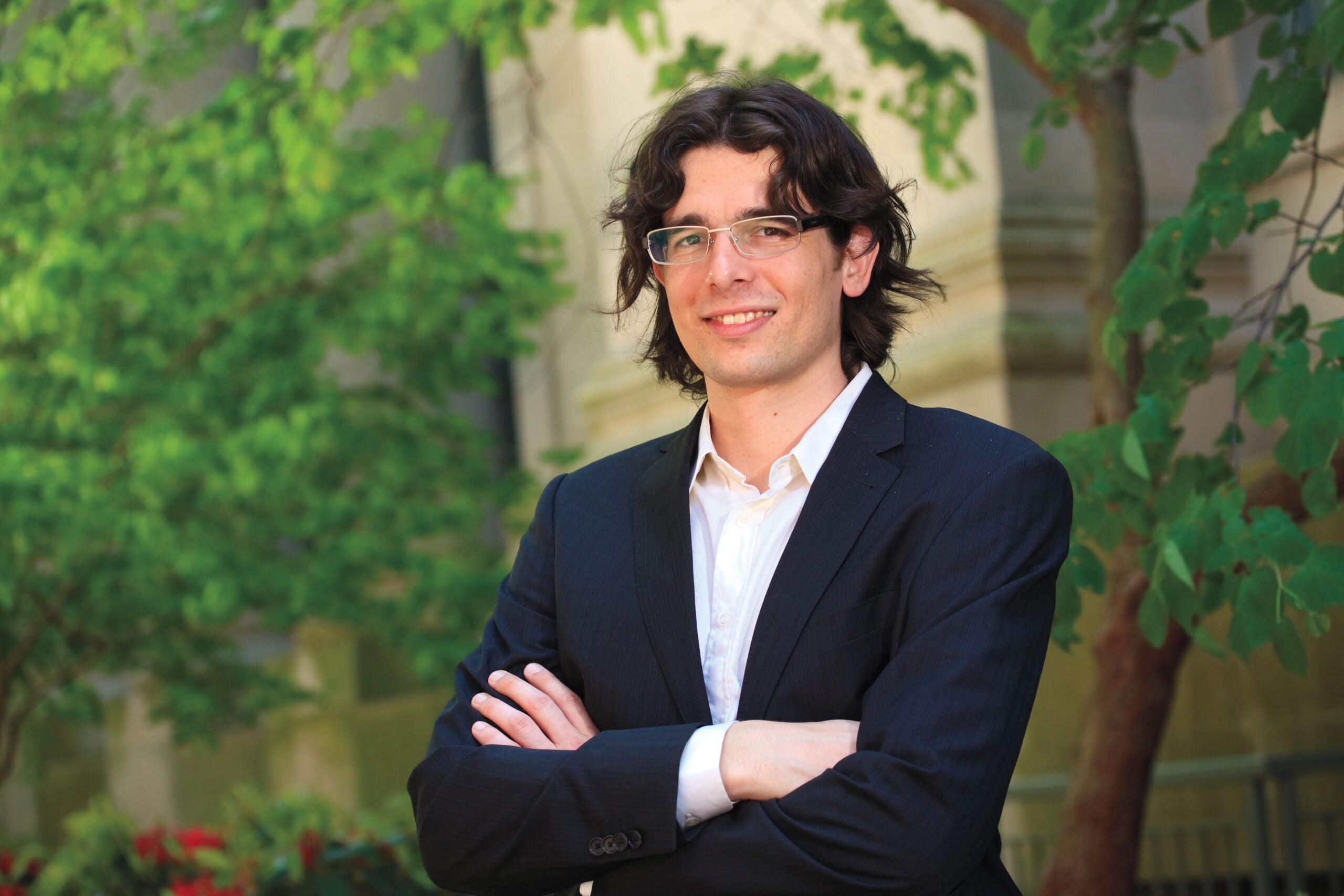A few weeks before he received his LL.M. from Harvard Law last year, János Fiala was handed a victory by the European Court of Human Rights.
The court ruled that the disenfranchisement of people with disabilities is contrary to the European Convention on Human Rights. The case, K.A. v. Hungary, was brought by Fiala in 2006 on behalf of a Hungarian citizen who, after a psychiatric hospitalization, had been placed under guardianship and was not allowed to vote in the 2006 elections.
A week after the ruling, Fiala predicted that it would lead the Hungarian government to change its guardianship laws. According to the Hungarian constitution, people under plenary guardianship—some 60,000 disabled adults—are deprived of the right to vote.
[pull-content content=”
Fiala said he is inspired by “the self-advocates,” the people with disabilities alongside whom he’s worked. He is also driven by the memory of clients, some of whom have died locked up in institutions, waiting for the legal system to bring them recourse.
Fiala’s prediction might have seemed optimistic, considering that the same government had just overturned a victory for people with disabilities that he and other advocates had been working for years to achieve.
As a lawyer at the Mental Disability Advocacy Center, in Budapest, from 2004 until he came to HLS, in addition to bringing a series of cases before the European court—17 so far—Fiala worked with a coalition of advocates, many of whom have developmental disabilities. They lobbied the Hungarian government to change laws that allowed disabled persons to be placed under guardianship against their will and deprived of the right to live independently, among other freedoms.
Fiala and his coalition were successful, but the provisions were tucked into a much broader law that the new government rejected.
In the face of this setback, Fiala has redoubled his efforts. And this year, as he predicted, the Hungarian government has struck the clause from its constitution disenfranchising those under guardianship.
Fiala returned to Hungary last June and has been involved in efforts to shape the new voting rights system. Funded in part by an HLS Henigson Fellowship, and working with a disability rights NGO in Budapest, he has continued to focus on cases before the European Court of Human Rights related to guardianship and involuntary institutionalization.
“Jan is an ingenious legal strategist and a terrific advocate,” said HLS Visiting Professor Michael Stein ’88, executive director of the Harvard Law School Project on Disability, with whom Fiala has been collaborating for several years and who will be one of his advisers when he enters the S.J.D. program next year. “He masterminded a series of cases before the European Court of Human Rights that have come to the fore at a time when Hungary and other Central European countries that ratified the U.N. Convention on the Rights of Persons with Disabilities are bound by its terms,” said Stein, who filed amici briefs in six of the cases.
Born a Hungarian in Slovakia, Fiala first joined a human rights NGO in college, working to draft Slovakia’s antidiscrimination law. “That’s when I began to understand what people here still don’t understand: You don’t have to be a member of Parliament to make things change,” he said.
He went on to get an LL.M. in international human rights law in Budapest, but the first time he focused on the plight of people with disabilities was after a professor asked him to help with a BBC undercover investigation of psychiatric institutions in Slovakia.
The film focused on “cage beds,” in which patients were detained, sometimes for weeks, and it caused an outcry. But for Fiala, even more shocking was the discovery of the bigger system, in which people with disabilities who were placed under guardianship were allowed so little say over their lives that they could be institutionalized against their will and held indefinitely. “I had studied human rights in law school, but I hadn’t heard a word about the rights of persons with disabilities,” said Fiala. What he saw in the mental hospital launched his career. “It made me think, This is something the law should have a say about. This should not be going on.”
Fiala said he is inspired by “the self-advocates,” the people with disabilities alongside whom he’s worked. He is also driven by the memory of clients, some of whom have died locked up in institutions, waiting for the legal system to bring them recourse. “It’s made me realize this is something which cannot wait.”
